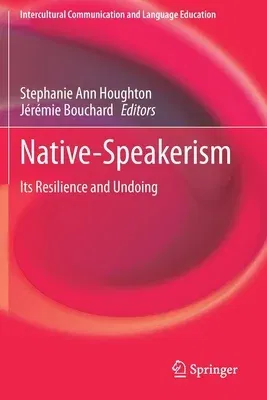Native-Speakerism: Its Resilience and Undoing (2020)Paperback - 2020, 14 November 2021

Qty
1
Turbo
Ships in 2 - 3 days
In Stock
Free Delivery
Cash on Delivery
15 Days
Free Returns
Secure Checkout
Part of Series
Intercultural Communication and Language Education
Print Length
287 pages
Language
English
Publisher
Springer
Date Published
14 Nov 2021
ISBN-10
9811556733
ISBN-13
9789811556739
Description
Product Details
Book Edition:
2020
Book Format:
Paperback
Country of Origin:
NL
Date Published:
14 November 2021
Dimensions:
23.39 x
15.6 x
1.6 cm
ISBN-10:
9811556733
ISBN-13:
9789811556739
Language:
English
Location:
Singapore
Pages:
287
Publisher:
Weight:
421.84 gm

